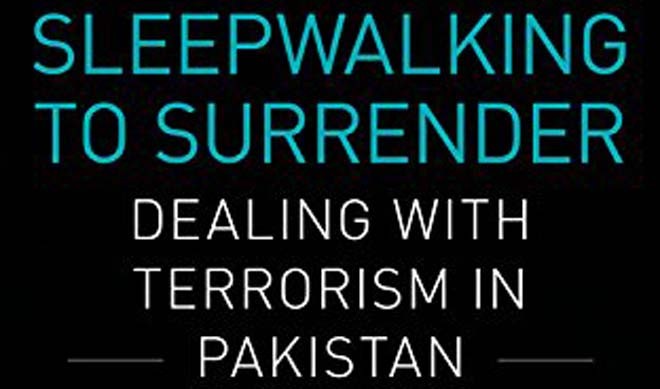
Khaled Ahmed’s latest book captures events that are often ignored in our official narrative

Often we perceive situations in black and white without realising how reality exists in the grey. In philosophical thought, thesis, anti-thesis and synthesis help us understand a proposition. But in a black and white scenario, one tends to emphasise either on thesis or anti-thesis rather than synthesis. In South Asia, thanks to centralised colonial thinking patterns, the monolithic approach is the order of the day. From textbooks to media and from literature to politics, we often witness interpretations of official narrative. That is why in post-colonial societies, authority runs even in intellectual circles.
Pakistan is fortunate that way because we had visible spaces against court historians not only in politics but also in literature from day one. It has helped Pakistan in many ways and Khaled Ahmed is one among the writers who are known for their anti-thesis approach. His contribution is useful because in the absence of anti-thesis, it is impossible to move towards synthesis.
Like his previous books and writings, Ahmed has in this latest work, Sleepwalking to Surrender: Dealing with Terrorism in Pakistan, captured events that are often ignored in our official narrative. You may disagree with the interpretations but you cannot deny the facts.
A chapter in his new book ‘A Council of Runaway Ideology’ provides a fresh analysis on CII and its linkages with the security establishment in Pakistan. He strongly criticises General Ziaul Haq and the Council of Islamic Ideology (CII): "Zia rejected Allama Iqbal’s view of Ijtihad (reinterpretation) and not only imposed the cutting of hands for the theft but also fired the then CII’s chairman in order to impose stoning to death which is not specifically mentioned in the Quran".
Interestingly, 69 years after their birth, official narratives are facing serious challenges not only in academia but also in journalism and politics, in both India and Pakistan. But the ‘deep state’ is not willing to leave the old narrative in either of the two states. The Gujral Doctrine (1996-1997) in India and the Lahore Agreement (1999) in Pakistan are bold examples that were put in place to ensure peace and prosperity in the region. Although both efforts were challenged by their respective establishments, their existence proved that the peace lobby is not as weak as it is usually considered to be.
In all the 32 chapters in the book, the author has tried to touch every important issue facing the country -- including in-depth discussions on Lal Masjid, Karachi, the ideology of Pakistan, Modi-Nawaz meetings, Kashmir, Afghanistan, the Taliban, Balochistan, Pak-US relations and religious and sectarian groups.
The chapter titled ‘Breaking through in Balochistan’ deserves extra attention. In this chapter, the author has discussed the Baloch separatist movement with special reference to the National Party’s first election, and the nationalist government of Dr Abdul Malik Baloch. In my view, the conduct of this government was far mature than Attaullah Mengal’s 1972, government and future historians will write positively about Baloch’s era.
Balochistan has a unique position in our country’s politics. Ahmed has discussed many issues including killings of minority Hazara, the missing persons’ issue, the Pakhtun factor in Balochistan, religious and secular terrorists, Akhtar Mengal’s 6-points and Indian involvement in the province.
Some facts are more alarming than the separatists’ issue; for example, he writes: "There are over 70 gangs involved in kidnapping for ransom, some backed by Baloch feudal leaders, many of whom keep private armies, and members of Balochistan Assembly."
In my view, it is important to trace the linkages between smuggling and terrorism with special reference to FATA and the coastal belt in Balochistan. That informal trade comprises Balochistan’s leading economy has deeply impacted the federal and provincial institutions and departments including border security personnel. The task ahead is to transform it into formal trade.
In order to understand the Dharna factor, it is important to read chapter four titled ‘A revolution against democracy’. However, the story of Lieutenant General Shahid Aziz reproduced by Khaled Ahmed in "A Typical General?" may interest you more. Regarding Kargil, Lieutenant General Aziz explains "it was an unsound military plan based on invalid assumptions, launched with little preparations and in total disregard of the regional and international environment." Aziz did not hesitate to say that Musharraf did not share plans with his corps commanders. CGS Lt General Mohammad Aziz, Lt General Javed Hassan Commander FCNA and Lt General Mahmud Ahmed, Commander 10-Corps Rawalpindi were the three other generals who knew the plan.
Lieutenant General Shahid Aziz has also exposed how Musharraf misused the National Accountability Bureau (NAB). After retirement, Lieutenant General Aziz, who is related to Musharraf through marriage, was appointed as NAB’s chairman. On the very first day, Musharraf told Aziz to provide immunity to Minister Faisal Saleh Hayat. The most interesting nugget in the chapter is about the reference of Dajjal (Antichrist) on the dollar bill, symbolising the grand conspiracy. Lieutenant General Aziz thinks that whatever is happening in the world is a part of a Jewish conspiracy. It reflects the mindset of our decision-makers.
The book is written in the post 9/11 scenario where the Pakistani state along with parliament is trying to fix the complex issue of extremism and terrorism through Zarb-e-Azb and National Action Plan. Had Pakistan adopted that strategy in the early years of 9/11, things would be much different now. The reason why Pakistan remained reluctant during the first decade (2002-2012) was largely due to misleading narratives. The author has successfully exposed them by narrating various events.